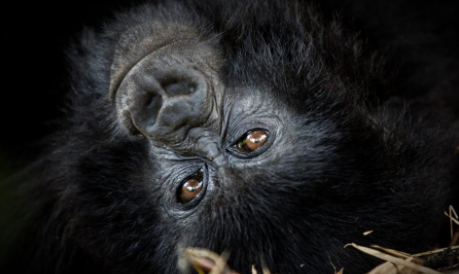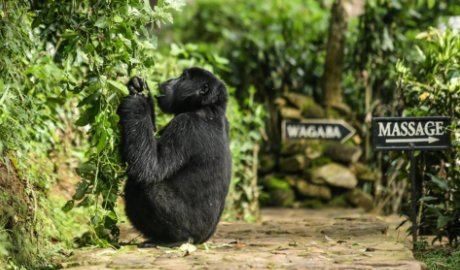There Are Fewer Than 900 Gorillas Left. Here's How to Save Them.

Praveen Moman concedes that 1997 wasn't the best time to begin a business in Rwanda. It was four years after the finish of a staggeringly destroying common war, only three since the Rwandan Genocide. Moman, 62, conceived in Uganda of a Punjabi family who came to East Africa in the 1930s, was jobless. He'd been laboring for a long time as a political counselor in London and Brussels. Be that as it may, he says, "The association with Uganda stayed extremely solid. One day I woke up and backpedaled there and thought, 'this is the place I need to begin accomplishing something.'" Volcanoes Safaris was conceived, developing from a couple of humble camps along the Virunga Mountains to three cabins in Uganda and one in Rwanda. Observing Volcanoes' twentieth commemoration, Moman talks gorillas and offering back to the neighborhood group.
SF: Have you come to see gorillas distinctively since you've been working in Uganda and Rwanda?
PM: From the first occasion when you see them, you feel these individuals—and I do mean individuals—are identified with you. Their eyes, what they look like at you, and their hands, which have exceptionally solid parallels to our own. These are animal in the wild who you don't have the foggiest idea, yet they're as inquisitive about you as you are them. You're associating with your cousins, and the gorillas perceive this. Their conduct is so human, and that is the thing that makes [seeing them] such an extraordinary thing.
SF: Walk us through a meeting with a gorilla family.
PM: You'll get an instructions on the most proficient method to carry on with the gorillas and after that you begin strolling. There are officers checking the entire time. You may drive 10-30 minutes along the Virunga Mounains. It's an Afromontane timberland. The undergrowth is constrained; it's extremely ethereal. There are no significant bugs. It resembles a tropical variant of a New England backwoods. You'll hear and now and again observe astonishing fowls. At that point you'll move gradually and painstakingly in to see the gorillas. You're behind the officers and aides, who will continue bringing up the gorillas. You'll have 60 minutes, and it goes rapidly. The gorillas are extremely accommodating delicate goliaths, moving, nourishing, connecting with each other, cooperating with you.
SF: How would you work with the nearby group?
PM: It's fundamental that you associate with your neighbors. These are ranges that have seen colossal clash and hardship, and one can't overlook that.
The key segment is associating the gorillas and the financial advantage to the group. On the off chance that there's no monetary advantage, will they stay alive? It's an unavoidable issue. For neighborhood individuals, [the gorillas] are a burden. They involve valuable land, which, appropriately, they would rather have for cultivating.
Tourism is a business, and the stream down is tremendous. It's the store network of improvement. Ten years after the war in Rwanda, we fabricated the cabin. [The locals] were subsistence agriculturists. Maria was one of our unique day specialists, paid by the day. Throughout the previous 10 years she's been head of clothing. Every last bit of her kids went to class; one is working in an inn and one is going to college. Cyprien has been with us since the hotel was manufactured. Today he's head of development. His little girl has gone to college. One of the offspring of another person who's worked with us is concentrate to end up noticeably a specialist. We have given 80 houses power, which enables kids to get their work done during the evening.
[We have] a hundred Batwa who are our neighbors and who have been destitute for a long time, without land to live or cultivate on. The charitable arm of Volcanoes Safaris has purchased arrive for them, will construct houses for 100 individuals and has likewise [set aside] arrive for development. From each reserving, US$100 goes into the philanthropic so we have enough finances to continue doing this.